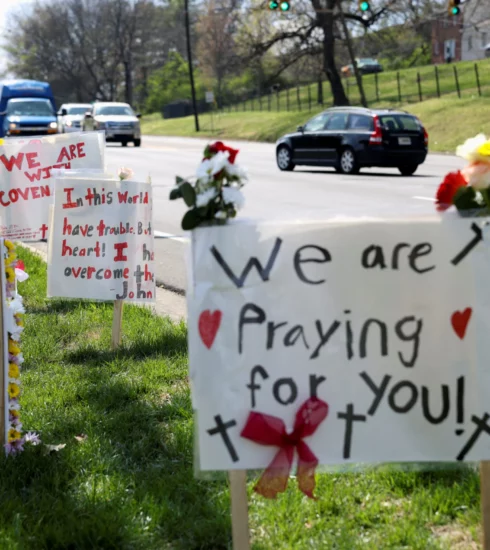Mental health counsellors in Colorado during the week expressed surprise with the new rules that will make it harder for those in private practice to treat the state’s most vulnerable patients: those with Medicaid insurance.
For the benefit of those who may not know, Colorado’s Medicaid Program now known as “Health First Colorado” is a free or low cost public health insurance for Coloradans who qualify. The scheme covers doctor visits, emergency care, preventive care such as screenings and immunizations, and other procedures and treatments for beneficiaries. Finding a mental health provider while on Medicaid can be a challenge in Colorado according to residents in the state. There have been tons of complaints since the beginning of the year over the rising number of clinics, hospices and hospitals who have continued to turn back residents on the Medicaid plan.
Danielle Patterson with the Patterson Center for Resiliency said earlier in the year that providers weren’t taking Medicaid patients because of the problems with Medicaid.

In her words; “We’ve had prospective patients call and say they’ve called ten to fifteen places and there are no openings. We have clinicians who have openings, but the problem is getting insurance to take these clinicians who are unlicensed or in their training program. They’ve done years of school, they’ve passed many tests, and they’ve done hours of internships and supervision. There are also some issues with getting paid on time, getting paid fairly, and there is something called a clawback which is where Medicaid has seven years in Colorado to take money back for appropriately performed services and change their mind about it. Many other states have six months to one year of that. Many of us got letters for tens of thousands of dollars that they wanted this year, and that could bankrupt us,” said Patterson.
In February this year, The Colorado Department of Health Care Policy and Financing organized a virtual forum where mental health therapists, counsellors and psychologists from all over the state could join in and air their misgivings about all that is wrong with Medicaid from payment delays and burdensome paperwork to administrative burdens. The direction the meeting went left the majority of its participants angrier, incensed and frustrated.
The forum, which was intended to clear the air, came after months if not years of intense frustration among mental health providers in private practice who want to treat patients covered by Medicaid. Many of the 160 therapists, psychologists and social workers who attended said they expected they would get to vent their frustrations and seek solutions during the forum. Instead, two mediators asked them to log into an instant polling website on their cell phones and respond to questions, including whether they felt the process was “moving in the right direction” and what was currently going well. As the answers were displayed live on the screen in colorful words and graphs, mental health workers quickly got annoyed.
The workers of the health sector in Colorado are clearly frustrated at the slow pace of progress being made on this issue considering the fact that about 31% of the state’s citizens are on Medicaid according to stats from coloradohealthinstitute.org.
According to the new rules which were announced at the beginning of this month, it imposes stricter requirements on using interns still working toward their graduate degrees and therapists who have graduated but have yet to receive their license, a process that takes two to four years after graduation. Those pre-licensed counsellors can see patients, but must have a licensed counsellor sign off on their diagnoses and progress notes from each counselling session.
With the new rules, only counsellors who have been licensed for at least two years can sign off on the work of pre-licensed counsellors. The rules also stipulate that any counsellor sanctioned by the state licensing division, at the Department of Regulatory Agencies, must wait for two years after their sanctions have expired before supervising pre-licensed counsellors.
Workers in the private health care practice clearly see these rules as grossly overreaching, as it will most definitely mean fewer appointments for patients on the government insurance program for the needy, Medicaid. Andrew Rose, a psychotherapist and director of Boulder Emotional Wellness, in an interview with the Colorado Sun last month said that “We feel like that is going too far, if DORA has decided you are safe to practice, that should be good enough.” The current disenfranchisement with the Medicaid plan is already at an all-time high amongst private health practitioners and even speaks to a larger dysfunction with how the State of Colorado runs its mental health programs.
In 2012, James Holmes, an Aurora based laborer, opened fire on a packed movie theatre in Aurora, killing 12 and injuring dozens more. Prior to him committing that gory act, James had been diagnosed with schizophrenia. Schizophrenia is a mental disorder in which people interpret reality abnormally. It’s on record that James had tried to get mental health treatment before the killings repeatedly but was never able to despite having met with at least three mental health professionals at the University of Colorado prior to the massacre.

Now going by multiple reports, then-Colorado Gov. John Hickenlooper began the search for preventive solutions. He turned to his cabinet and asked for a plan to expand crisis mental health services. He got a comprehensive blueprint to spend millions more, but it came with strings attached: To get the money, the system might have to change.

Reggie Bicha, former head of the Colorado Department of Human Services had said at the time that “If you keep putting more money into that system, you’re likely to get more of the same result”. “And we felt as a leadership team at CDHS, and the governor’s team supported this, that we needed some new ideas and new perspectives, and we wanted these new dollars to go out in a competitive array.”
Ultimately, that never happened. Why? No one can give a definite answer, but attempts have been made since then and even more recently to reform the delivery network for mental health care in the state. While the events of 2012 till date offers us a look at how difficult it can be to impose change on the politically connected, deeply-entrenched group of community-based providers that have managed the system for decades, it is one that needs to happen sooner rather than later for the benefit of all concerned. And that starts with tackling the issues surrounding the Medicaid plan once and for all.
Cristen Bates, the state’s interim Medicaid director, has constantly defended the policies put in place by saying it’s all geared toward expanding the workforce — by creating standardized rules so that counsellors still seeking their license have a clear path to getting experience and becoming licensed counsellors. One of the pertinent issues is that the regional agencies that serve as the middlemen between clinics and the state Medicaid department have had inconsistent rules as they’ve allowed pre-licensed counselors to practice under supervision. The new policy, which also applies to community mental health centers, was created by those agencies to apply to counselors statewide.
“We have to make sure that our members are getting high-quality care,” Bates further argued. “We were glad to see some very clear rules about when this is and is not appropriate”. Where the department erred, Bates said, was in not informing behavioural health care professionals about the policy changes or showing them a draft ahead of the implementation date.
“The rollout was where we kind of had some challenges,” she said. Regional agencies are now considering possible changes to the policy and have said they will not deny claims or penalize clinics that are not following the new rules. After the outcry from providers, the regional agencies backtracked on the July 1 implementation date. One of them, Colorado Access, said in an email sent out to news outlets that the policy change is not in effect and that “any changes to our current program will include additional input and advance notice.”
The discord is the latest in a long list of frustrations among mental health professionals who say they want to provide therapy for people on Medicaid but are fed up dealing with burdensome rules, low reimbursement rates, redundant paperwork and even threats of having payments revoked. It comes as Colorado is facing unprecedented need for services, due in part to the isolation and stress of the coronavirus pandemic. It’s also worth reiterating that Medicaid has the lowest reimbursement rate compared to other carriers, so it’s not like health practitioners are looking for ways to cash in. They are simply advocating and demanding for the leeway needed to be able to carry out services that the state desperately needs.
A very disturbing thought that has continued to linger is, who sets policy and who gets to have a say in that process? How qualified are those who sets these policies and are they really in tune with the reality health workers all across the state face?
Mental health providers have been meeting regularly with the Medicaid department to smooth out their relationship after a series of issues, including rate cuts and processing problems that resulted in a regional agency trying to take back money from clinics that had already been paid for seeing Medicaid clients. They also want a minimum credentialing time set because it can take six months to a year to become paneled with Medicaid, while other providers process theirs in 3-5 months.
One thing is clear enough, the latest policy changes that have come out of nowhere threatens to leave the state with a large number of patients who need some form of mental help vulnerable. It’s time for the state lawmakers and the Governor to wade into this and prevent any form of catastrophe any delays may cause down the line.
A stitch in time for the State of Colorado will definitely save nine.






